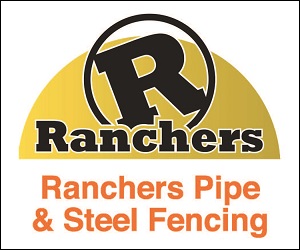Written By: Kendra M. Norman
It is not an easy topic of discussion, but as a horse owner, it is important to consider the care of your horses after your passing. To ensure proper care and management, it is imperative to make equine-specific prior arrangements as a part of your estate planning.
Careful planning and sound legal advice are central to ensuring the well-being of your horses after your life. Why be so diligent and thorough? The best answer may be to consider what could happen if a horse owner does not take the time and put in the energy to plan appropriately.
In the wrong circumstances, a horse’s fate is up in the air. Without specific guidance and resources set forth in an estate plan, a beneficiary may be surprised by what it takes to appropriately care for a horse or multiple horses. If the beneficiary has little knowledge or interest in caring for them, the horses may not be provided for in the way you desire.
While any estate plan is specific to the particular needs and desires of the person doing the planning, when it comes to planning for horses there are two general considerations with which to begin. First, leave a responsible person in charge with the required knowledge to care for your horse and an ability to make good decisions. Second, carefully specify and plan for the outcome you want for your horses.
WHO WILL TAKE OWNERSHIP?
There are several options when considering how to provide for your horses after your death. You may opt to allow your personal representative or trustee to sell them, or leave them in the care of an individual or entity as a beneficiary. If you choose to leave your horses to a beneficiary, you should choose a trusted, capable person who values your horses at a level with which you are comfortable.
It is advisable to consider whether the beneficiary has the resources to care for them. Are they able to cover associated costs, or are you prepared to provide funds? Based on the age of, and your intentions for, the horses, how much funding should you provide? Are you leaving land and facilities to the beneficiary, or are they in the position to provide the horses with a proper living condition? Over time, how might the beneficiary’s circumstances change that could affect the horses’ future? These are all important factors that you should discuss with your attorney, and finding the right person to trust with such responsibility is an important personal decision.
When planning, gather specific information that the beneficiary will need, such as the health history of all horses, your veterinarian’s name and costs associated with temporary and permanent care, as well as setting aside required funds, if necessary. Even if your estate plan calls for the horses to be sold, it may be some time before the sale can occur. In the interim, an effective estate plan will take this into account. All aspects need to be well thought out, clear and specific to protect the horses’ quality of life.
WILL OR TRUST?
Another critical decision is how you should structure the equine-related portion of your estate planning. Generally speaking, there are two vehicles for planning an estate that ensure the intensions of the decedent: a will and a trust.
With respect to a will, it is important to note that the estate will probably be required to go through the probate process to verify the legality of the will and ensure distribution according to the decedent’s intentions. Probate is a public, costly and time-consuming court process that often takes up to nine months to several years, depending on the complexity of the estate and whether any family members challenge the validity of the will.
While probate assets are tied up during administration, the will’s executor has a fiduciary responsibility to care for the estate’s assets, including proper care for the horses. Unless the beneficiary of the horses and the executor are the same person, this could be problematic. Additionally, a will takes effect only upon death, which leaves in question what would happen if you become ill or incapacitated.
A living trust, also known as a revocable trust, is a popular alternative for numerous reasons, including the flexibility and privacy it offers. A living trust can be established for your benefit during your lifetime and provide for the disposition of your assets, including your horses, upon your death. You can specify the beneficiaries who will receive your horses after your death, and money can be set aside in a trust account to fund their care. Additionally, the trust may provide directions for your horses if you become ill or incapacitated, and your horses can be transferred by the successor trustee according to your wishes immediately upon death, avoiding a public probate and related costs and court delays.
Importantly, a living trust must be fully funded to avoid probate. You must transfer your assets to it and change the titles of assets to the name of the trust. A trust and its trustee cannot control any assets that are not transferred to the trust, so it is important to make sure the necessary assets are in the trust and not owned in your personal name.
When funding a trust for the future benefit of your horses, consider that when the trust runs out of money, the financial requirements fall to the beneficiary who becomes the caregiver. If he or she is unwilling or unable to care for them, the outcome may not be what you had originally intended.
PET TRUST
In some states, including Oklahoma, a pet trust may be included in a living trust or as a stand-alone trust. In 2010, Oklahoma Governor Brad Henry signed HB 1641, which validates trusts for the care of domestic pets. Under such an arrangement, rather than your horse being considered an estate asset within a living trust, you can create a trust where your horses are the initial beneficiary for the rest of their lives.
In a pet trust, a trustee is assigned and compensated for the caregiving and must adhere to accounting requirements. You must also assign a separate trust enforcer to ensure the trustee is abiding by the obligations set forth in the trust. Additionally, you must name a remainder beneficiary. After the horses have passed away or the obligations of the trust are otherwise met, any leftover funds are distributed to the remainder beneficiary or beneficiaries under the guidance of the trust.
This type of trust is beneficial to horse owners, in particular, to ensure the beneficiary will have the financial ability to give the horses the care and treatment that you desire. If a caring and responsible trustee lacks the resources to care for the horses, such a trust will eliminate this issue.
Properly planning for the well-being of your horses in the event that they outlive you is a complicated investment in time, energy and money, but for horse lovers, it is all well-spent. An attorney can help you by drawing up the legal documents stating your intentions to ensure your equine interests are handled in the way you intend.
###
Kendra M. Norman is an attorney at Phillips Murrah who represents clients in a broad range of transactional matters, including estate planning and business succession.

